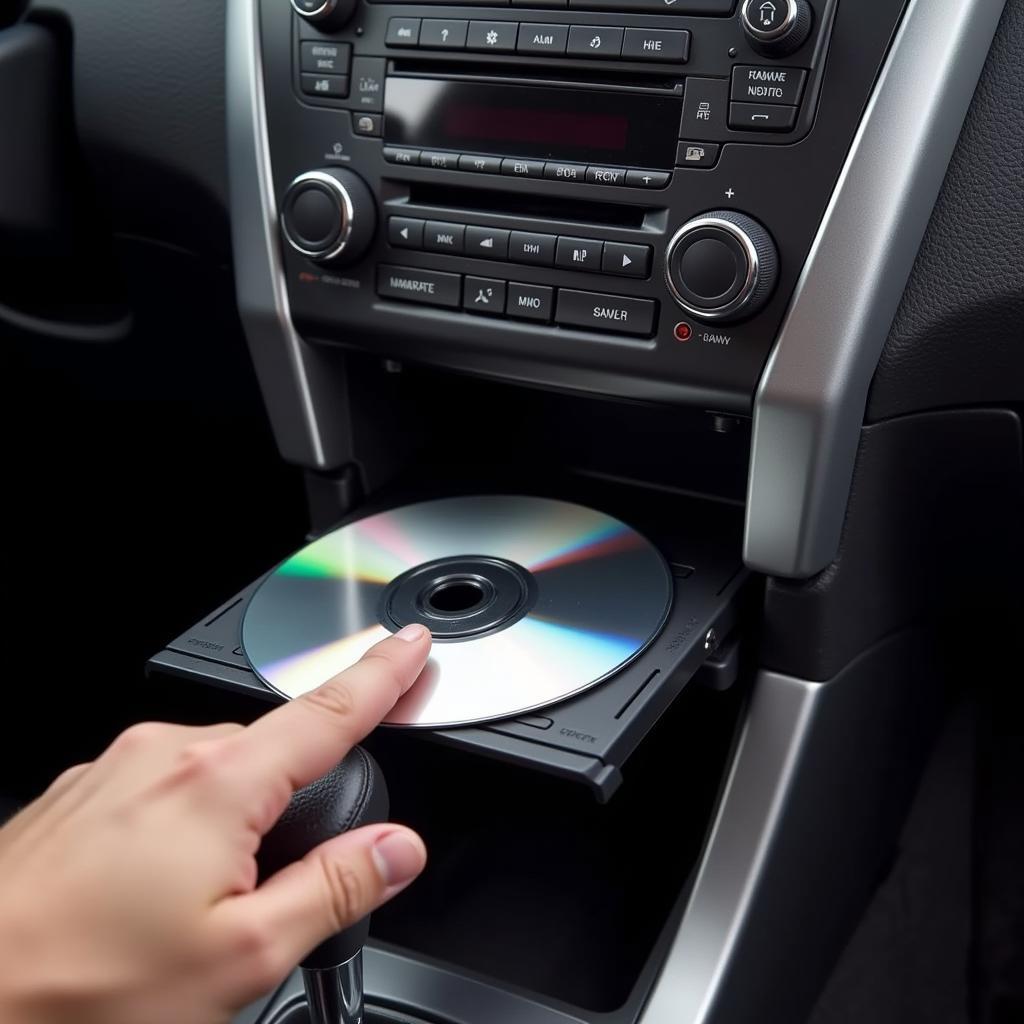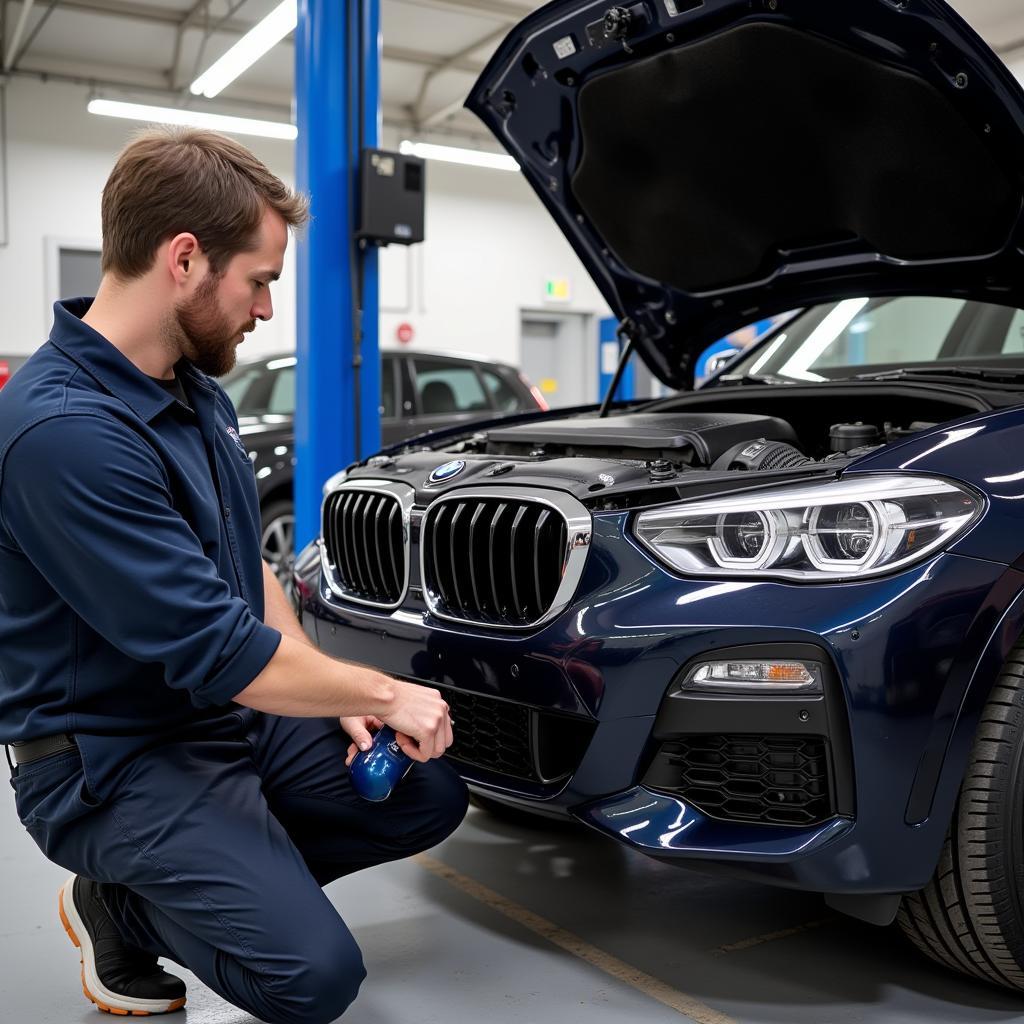Preventive maintenance is the key to keeping your car running smoothly and avoiding costly repairs down the line. By performing regular maintenance tasks, you can catch potential problems early and prevent them from escalating into major issues. This guide will walk you through the essential preventive maintenance tasks for your car, providing valuable tips and insights to ensure your vehicle stays in top shape.
Why Preventive Maintenance is Essential
Think of your car like a finely tuned machine. Just like any machine, it needs regular maintenance to function properly. Neglecting preventive maintenance can lead to:
- Increased Repair Costs: Small issues that could have been easily fixed during regular maintenance can escalate into major problems, resulting in expensive repairs.
- Reduced Fuel Efficiency: Dirty air filters and clogged spark plugs can negatively impact your fuel economy, leading to higher gas bills.
- Safety Hazards: Worn-out brake pads, faulty tires, or malfunctioning lights can compromise your safety on the road.
- Reduced Vehicle Life: Regular maintenance helps to extend the life of your car by preventing wear and tear and catching potential issues early.
Basic Preventive Maintenance Tasks
Here are some essential preventive maintenance tasks that you should perform regularly:
Oil Change
An oil change is perhaps the most critical preventive maintenance task. Engine oil lubricates moving parts, reducing friction and wear. As the oil breaks down over time, it needs to be replaced.
- Frequency: Most car manufacturers recommend an oil change every 3,000 to 5,000 miles. However, it’s best to check your owner’s manual for specific recommendations.
- Benefits: Prevents engine wear, improves fuel efficiency, and extends engine life.
Air Filter Replacement
The air filter keeps dirt and debris from entering your engine, protecting it from damage. A clogged air filter can restrict airflow, leading to reduced engine performance and fuel economy.
- Frequency: Replace your air filter every 12,000 to 15,000 miles.
- Benefits: Improves engine performance, increases fuel efficiency, and reduces emissions.
Tire Pressure Check
Maintaining proper tire pressure is crucial for safe driving. Underinflated tires can lead to uneven wear, reduced fuel efficiency, and increased stopping distances. Overinflated tires can also lead to premature wear and blowouts.
- Frequency: Check your tire pressure at least once a month, or before a long trip.
- Benefits: Improves handling, fuel efficiency, and reduces tire wear.
Brake Inspection
Your brakes are critical for safety, so it’s important to ensure they are in good working order. During a brake inspection, a mechanic will check the brake pads, rotors, calipers, and fluid levels.
- Frequency: Inspect your brakes every 6 months or 6,000 miles.
- Benefits: Ensures safe braking, prevents premature wear, and avoids costly repairs.
Coolant Flush
Coolant helps to regulate the temperature of your engine. Over time, coolant can become contaminated and lose its effectiveness. A coolant flush removes old coolant and replaces it with fresh fluid.
- Frequency: Flush your coolant every 2 to 3 years or 30,000 miles.
- Benefits: Prevents engine overheating, protects engine components, and extends engine life.
Additional Preventive Maintenance Tips
- Check Your Fluids: Regularly check the levels of your engine oil, coolant, brake fluid, power steering fluid, and windshield washer fluid.
- Inspect Your Belts and Hoses: Look for signs of wear, cracking, or leaks. Replace belts and hoses as needed.
- Check Your Battery: Make sure your battery terminals are clean and free of corrosion. Have your battery tested if it’s showing signs of weakness.
- Rotate Your Tires: Rotating your tires helps to ensure even wear and extend their life.
- Inspect Your Lights: Check all your lights, including headlights, taillights, brake lights, turn signals, and hazard lights.
- Clean Your Car: A clean car is a happy car! Regularly wash and wax your car to protect its paint and prevent rust.
“Preventive maintenance is like taking a proactive approach to your car’s health,” says John Smith, a certified mechanic with over 20 years of experience. “By staying ahead of potential issues, you can save yourself a lot of time, money, and stress in the long run.”
DIY vs. Professional Maintenance
While many preventive maintenance tasks can be performed at home, some require specialized tools and expertise. For tasks like oil changes and brake inspections, you may want to consider taking your car to a professional mechanic.
“There are certain tasks that are better left to the professionals,” says Sarah Jones, an automotive technician. “For example, if you’re not comfortable working with car fluids, it’s best to leave those tasks to someone who is experienced and qualified.”
The Benefits of Preventive Maintenance
Performing regular preventive maintenance offers numerous benefits, including:
- Improved Safety: A well-maintained car is a safer car.
- Extended Vehicle Life: Preventive maintenance helps to prevent wear and tear, extending the life of your car.
- Reduced Repair Costs: By catching problems early, you can avoid costly repairs down the line.
- Increased Fuel Efficiency: A well-maintained car is more fuel-efficient, saving you money on gas.
- Peace of Mind: Knowing your car is in good working order gives you peace of mind.
“Preventive maintenance is an investment in your car’s longevity and your safety,” says Mark Thompson, a car enthusiast and advocate for preventive maintenance. “It’s a small price to pay for peace of mind and the assurance that your car will be reliable when you need it most.”
Conclusion
Preventive maintenance is an essential part of owning a car. By performing regular maintenance tasks, you can ensure your car runs smoothly, safely, and efficiently for years to come. Remember to consult your owner’s manual for specific maintenance schedules and recommendations. If you’re not comfortable performing certain tasks yourself, don’t hesitate to take your car to a professional mechanic.
For expert advice and assistance with preventive maintenance on your car, contact AutoTipPro today.
Contact us at:
Phone: +1 (641) 206-8880
Office: 500 N St Mary’s St, San Antonio, TX 78205, United States
FAQ
-
Q: How often should I get my oil changed?
A: Most car manufacturers recommend an oil change every 3,000 to 5,000 miles. However, it’s best to check your owner’s manual for specific recommendations.
-
Q: What are some signs that my car needs maintenance?
A: Some common signs include strange noises, unusual smells, leaks, reduced fuel efficiency, and warning lights on your dashboard.
-
Q: How do I know if I should DIY or take my car to a mechanic?
A: If you’re not comfortable working on your car or if the task requires specialized tools, it’s best to take your car to a professional mechanic.
-
Q: Can preventive maintenance really save me money?
A: Absolutely! Catching problems early can prevent them from escalating into major issues, saving you money on repairs down the line.
-
Q: Is preventive maintenance really that important?
A: Yes, it’s essential for your car’s longevity, safety, and fuel efficiency. Think of it as an investment in your car’s health and well-being.






Leave a Reply